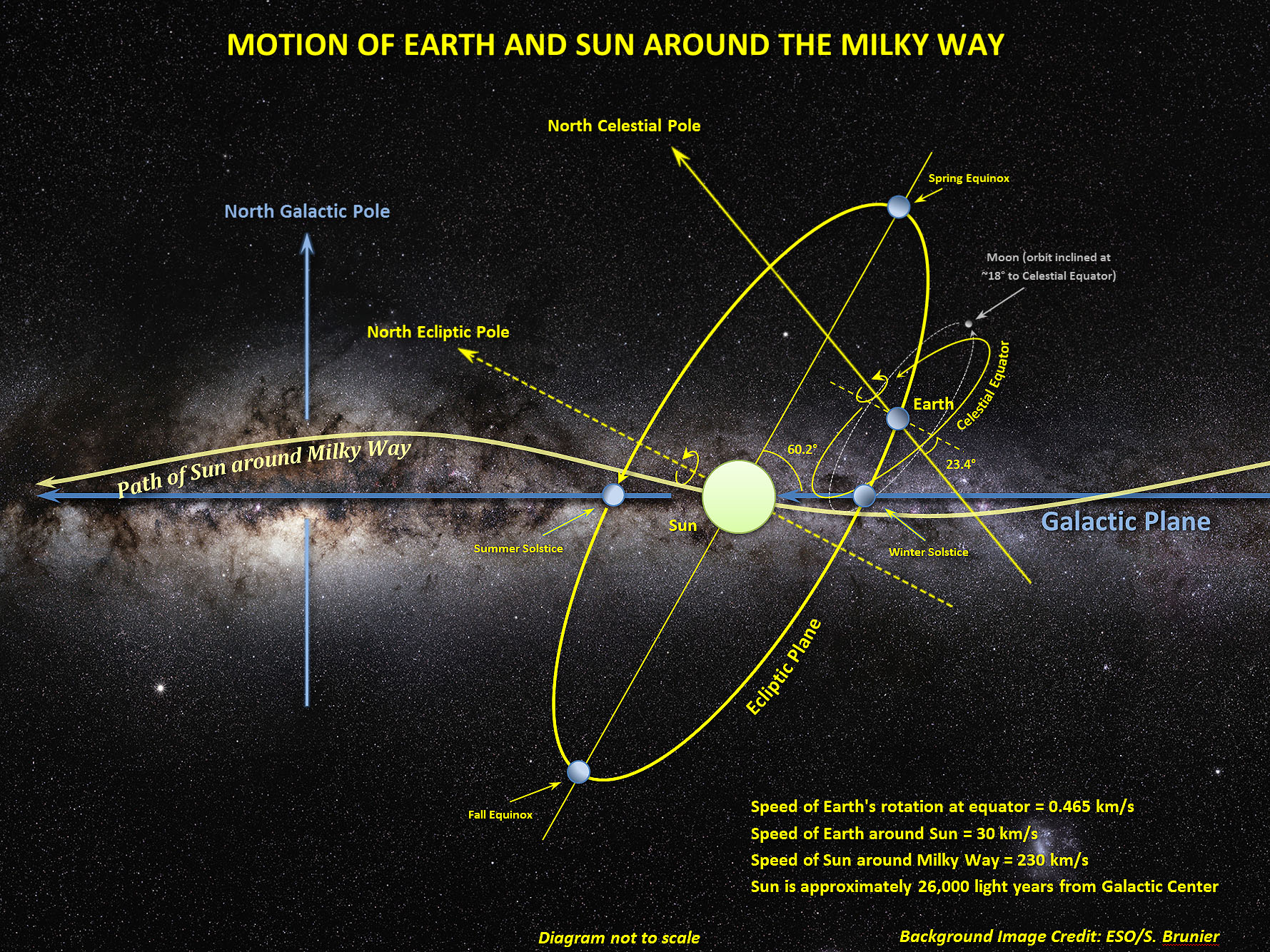Weekend Diversion: How did the bicycle cross the highway?
The world’s first suspended traffic circle… for bicycles!
“I would like to propose slow cycling. Commute by bike. At a stroke, you remove the need for and absurd cost of public transport. Cycling is almost completely free. There is no longer any need for the gym as you get fit by cycling. And you can go at your own pace.” -Tom Hodgkinson
I’ve been living in Portland, OR for more than five years now, possibly the most cycling-friendly of all the major cities in the United States. But even Portland still has a ways to go before we solve all of our traffic-related problems, and make the roadways optimally safe, convenient and expedient for everyone. Have a listen to electronica artist Psapp’s song, Tricycle…
while you take a look at what’s perhaps the most amazing innovation in cycling infrastructure I’ve ever seen: the Hovenring!

Connecting the three Dutch metropolitan areas of Eindhoven, Veldhoven and Meerhoven, the Hovenring (or “Ring of the Hovens”) is a remarkable feat of engineering that allows for the unimpeded flow of cyclist traffic without inconveniencing cars and trucks in the least!
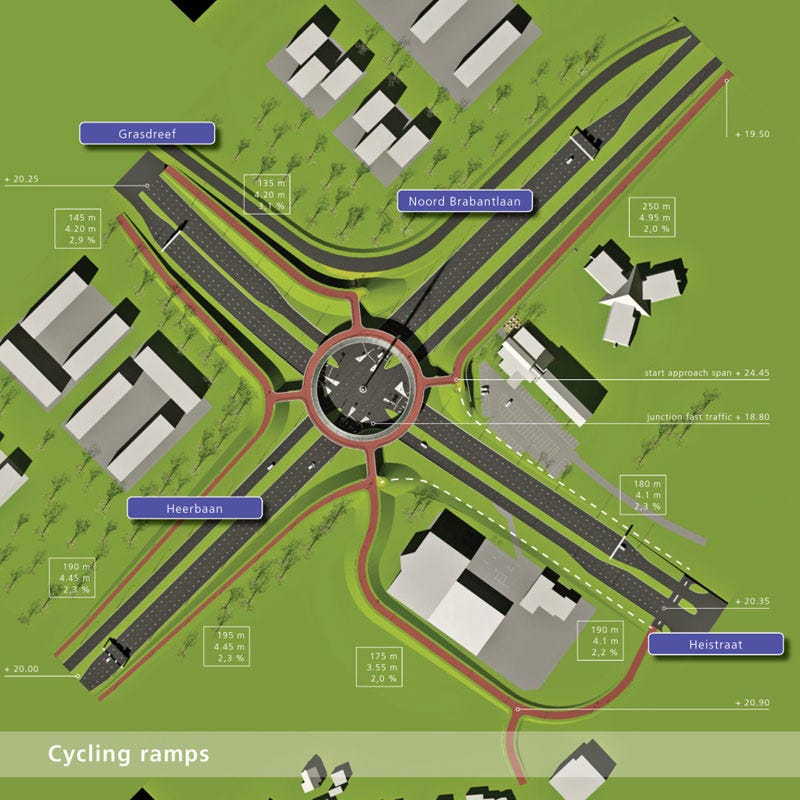
But it’s the engineering of this that’s the most amazing part to me.
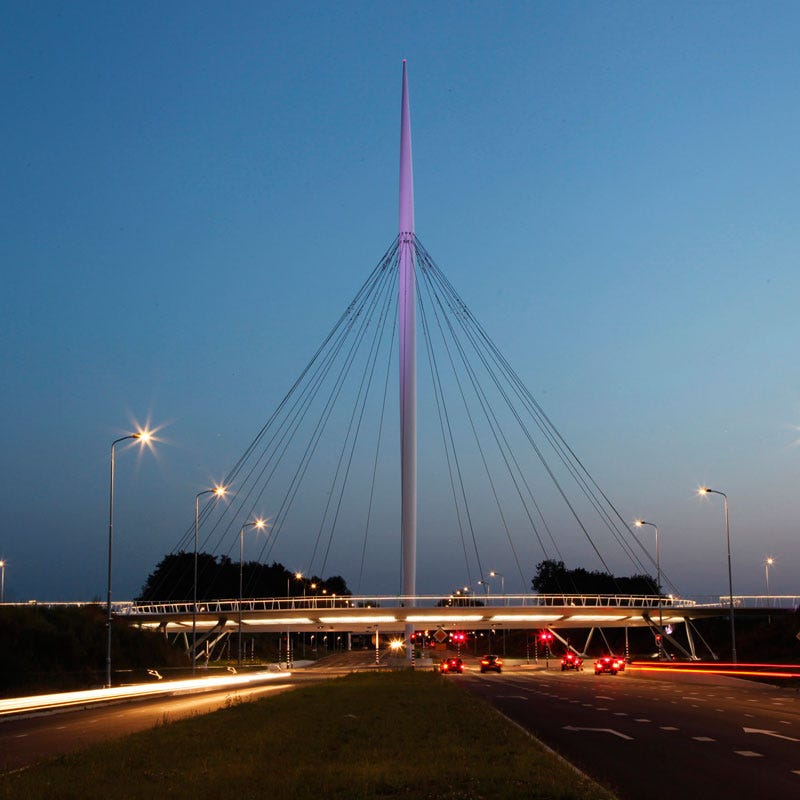
A huge challenge for building any large, suspended structure is dealing with the inevitable vibrations that will come about, and the Hovenring indeed came face-to-face with that right after its inauguration.
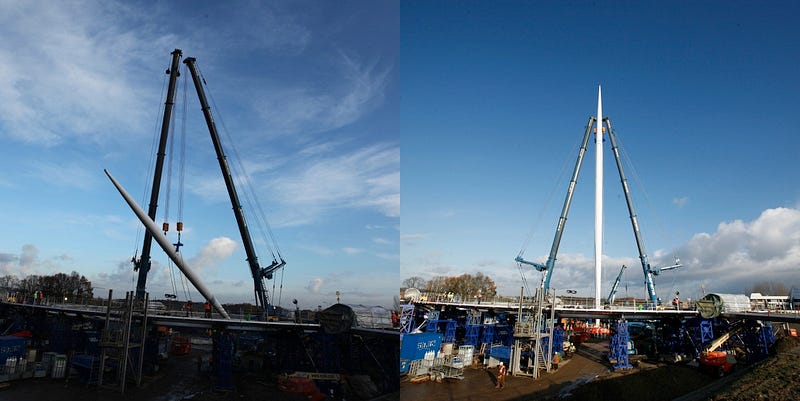
A 70-meter (230-foot) tall central pylon was erected, which was then connected by 24 steel cables to the circular bridge deck. All told, the structure weighs in at more than one million kilograms. That much mass, constructed in this fashion, prevented torsion on the structure to keep it stable, but was insufficient to prevent severe vibrations due to winds.
So additional modifications were made.

A combination of high-frequency and low-frequency vibration dampers were attached to the cables, and after less than six months, the Hovenring reopened for good on July 29, 2012.
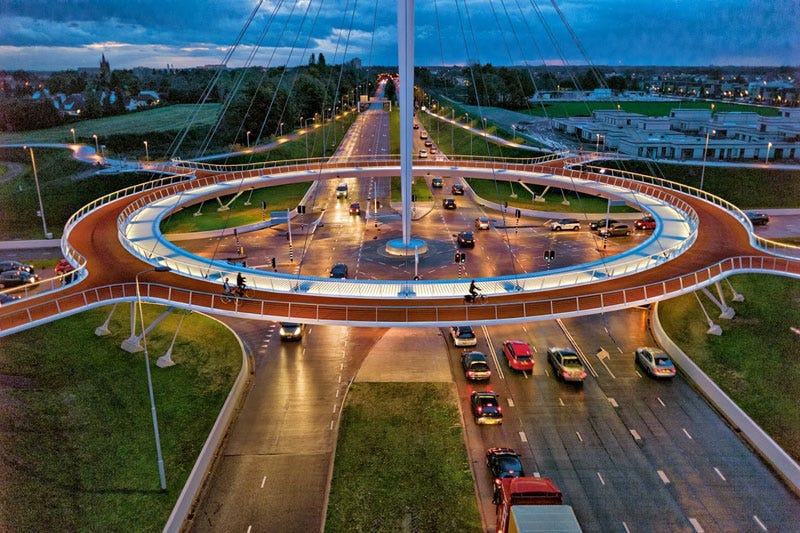
This is now widely regarded as the most prominent landmark structure in all of Eindhoven (sorry to the other two hovens), and IPV Delft has put together a remarkable video of the Hovenring for everyone to enjoy.
Although it doesn’t appeal to me nearly as much, it’s also worth pointing out that the lighting of the Hovenring is something wondrous to behold in its own right; TwistedSifter has more.
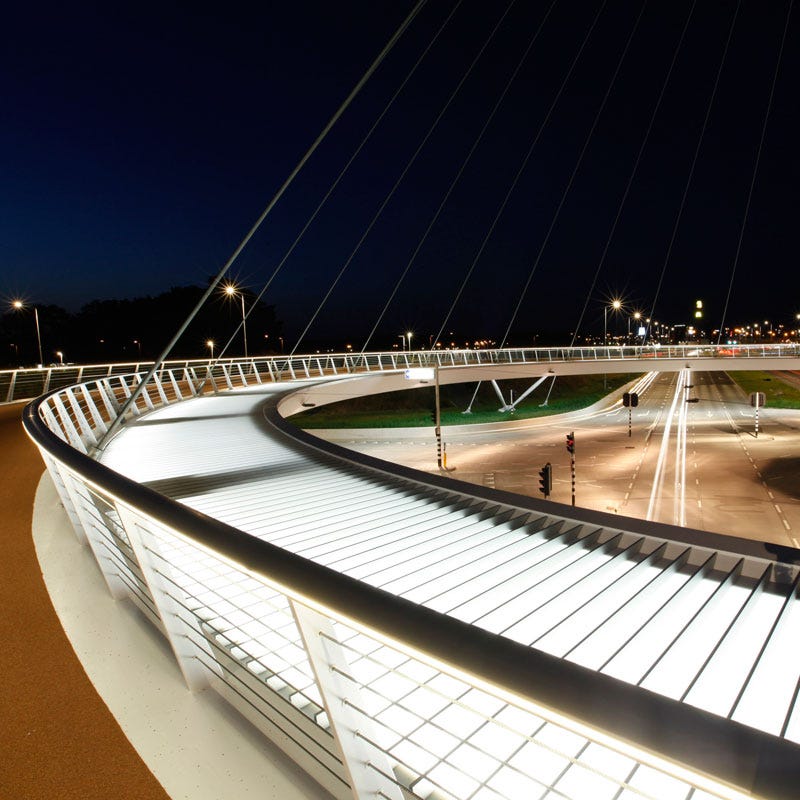
The improved safety and flow-of-traffic resulting from the total separation of bicycle-and-vehicular traffic has been remarkable, and it’s also remarkable that the Hovenring was only conceived in 2008, opened in 2011 and had all the kinks worked out by mid-2012.
I hope you enjoyed learning about this remarkable structure, and I’ll see you back here on Monday for more wonders of the Universe!

